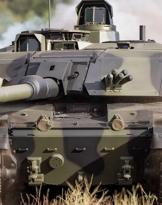During the first and second World Wars, the entire Italian territory was subjected to bombings, which did not always explode. Nowadays during the ordinary infrastructural, housing and industrial construction or occasional discoveries by citizens, these devices resurface.
The discovery causes a need for timely intervention, carried out with adequately trained personnel, special means and equipment, which make up the EOD (Explosive Ordnance Disposal) cores in order to protect the population mainly, but also the settlements and the environment. This activity, technically defined as "reclamation", is part of the coordination responsibilities of the National Civil Protection Department, which in the 2014 issued a circular to organize the forces involved in such cases.
In short the circular sets the joint enforcement program at five points: discovery of the bomb, signaling, request for intervention, order of intervention and disarming operation.
The actors called to intervene are almost always Regions, Municipalities, Prefectures, Armed Forces, Police Forces, Fire Brigade and Voluntary Military Corps of the Italian Red Cross Association.
In every job ensuring the safety of operators is a fundamental pillar, without which the activity must not start. Remediation always has a significant degree of risk, which requires a health support that goes beyond the ordinary emergency / urgency activity carried out by the national health service through the 1.1.8., But requires higher specialist level operative health forms.

The Italian Red Cross with its military component, guarantees this necessity with the ordinary use of a suitable 4x4 medical device, that is, the "VM90" Multirole Vehicle, ambulance version and a team of personnel (doctor, nurse and driver) with proven experience also in operational theater or in any case with a technical-professional preparation to adequately provide the relative assistance in case of need. Despite this preparation and background, the Voluntary Military Corps for its personnel, annually plans in the teaching calendar internal qualifying and specialized training courses, designed to become familiar with the uncommon tactical-operational context. Subsequently, this phase is completed with intense amalgamation periods, continuous training cycles and joint exercises with the operational nuclei of the Armed Forces, such as COM.SUB.IN. of the Italian Navy and the genius regiments of the Italian Army.
The activity by the military of the CRI is carried out throughout the year without stopping, throughout the national territory, involving hundreds of men who, totally free of charge, undertake to carry out the institutionally required tasks of Civil Protection, as set forth in the legislative decree n. 178 / 12 which reorganized the Corps and the entire Italian Red Cross, but above all doing so in compliance with the oath given in solemn form to the State, since every military CRI feels itself part of the institutions.
A particular and common note to the interforce apparatus called into question, is to be attributed to the environments where the staff is employed which is almost always impervious, that is, with an index of difficulty such that in driving the special vehicles used, driving is always uncomfortable . The role of the driver is very often taken for granted, but it is the one who has the responsibility to safely transport the personnel on board, protecting the integrity and efficiency of the vehicle itself.
The specificity of the "VM 90" ambulance version, ordinarily represents for the nurse the main task of checking that the rear sanitary compartment is disinfected and that every equipment inside is promptly efficient. The doctor in his competence as commander of the military unit oversees every aspect, a responsibility task carried out with competence and seriousness, both towards the same military colleagues and towards third parties. In case of intervention, the synergistic union of these three distinct professionalisms determine the expected result, that is, to save lives.
The CRI Voluntary Military Corps, if necessary, can also deploy other military support equipment, such as ROLE 1 modular field health facilities, which act as PMA (Advanced Medical Post).
I conclude this article by underlining a fundamental fact for the success of the reclamation, the connection and coordination constantly carried out by the Authorities in charge among them, which behind the scenes, or in their departmental operating rooms and technical offices, every day guarantee that the procedures are on better planned and implemented, without neglecting the slightest detail for the safety of all, citizens and the military.
"Inter Arma Caritas"
Photo: web / CMCRI












